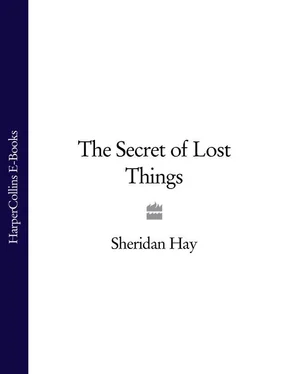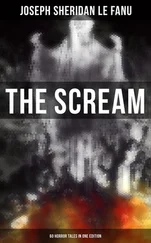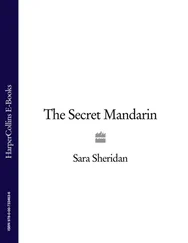Workroom girls told Mother I would be beautiful one day, “What with that hair,” they’d say. Mother looked dubious. My hair was thick and red, and seemed hardly to belong to me. I must have favored my father, and likely shared as well his green eyes and freckled skin, for Mother’s dark hair set off fathomless blue eyes, and her skin was flawless, the color of very milky tea. She was bird-boned and compact, her bosom high. It seems barely credible that I was her child, so little did we resemble each other.
At Foys, and at other suppliers, rabbit fur was pressed into fine felt: fur felt, for bowlers, fedoras, and the peculiarly Australian work hats with old-fashioned names like the Drover or the Squatter. The most expensive used imported beaver and were never worn to work but kept for best, for show.
In the very rear of Foys workroom was a dim adjoining chamber, piled with skins and smelling sharply of lye, frightening even to pass. I held a strange empathy for the mounds of lifeless pelts, waiting to be shaped into something purposeful. I had felt just as empty, as breathless, as those flayed furs during the hours Mother had left me with Merle. The other side of glimmering bric-a-brac was this grim sepulcher. Evidently, appearances deceived.
Yet Sydney made me happy. I loved the city. We were anonymous, and even then I had the sense that cities were yielding; that they moved over and made room. In the city, I wasn’t a girl without a father. I wasn’t outside of things. I wasn’t even Rosemary. In a city there is no one who can tell you who they think you are, who they want you to be. Once a year we were special and complete.
Here was the start of my scrapbook full of city scenes, any city, decorated with buttons and ribbon collected from suppliers, and painstakingly glued onto the oversized pages.
Peculiar to Sydney, in those days, was a single word written in chalk in beautiful, looping copperplate on street corners. Sydney was known for it, the word chalked at the feet of the inhabitants and visitors, like a letter consisting of a lone word, but personally addressed to each member of a crowd.
“What does it say?” I asked Mother, pointing to what I took to be scribble, the year I was five. The letters didn’t resemble any in the books that Chaps had given me.
“It says ‘ Eternity ’, love,” Mother replied, taking my hand. “A man has been writing that word in chalk for thirty years. It’s famous now. I don’t remember a time when I didn’t see it, written there on the street.” She put her arms around me.
“What does it mean?”
“We’ll never know it, Rosemary. It’s a word that means something going on always and forever. And you know, nothing does. Not a human thing, anyway. Everything ends eventually. That’s something you should remember, love.”
She looked absently up the crowded city street, staring past my face and into the distance.
“Remember, Rosemary,” she said. “Nothing lasts.”
It was weeks after Mother’s death before I slowed from the manic activity that marked the days following the funeral. A madness held me. I quickly closed Remarkable Hats, sold off the stock or returned it to suppliers for credit against accumulated debt. I was helped and advised by Chaps, and by Mr. Frank (the nine-and-three-quarters.) There was no other decision to be made. It isn’t true that he who dies pays all debts: I couldn’t preserve the store any more than could our life together. Mother and I had depended on a complex web of credit and postponed payments, revealed once she was gone as a great tangle of insolvency.
I cleaned the flat, the three rooms I’d lived in my entire life. I couldn’t tolerate the space without her; every article reflected her absence. I kept the only photograph I had of her, taken before I was born. After that, she’d always been behind the camera with me as subject.
Those first days I was a somnambulist, but it wasn’t like living a waking dream, even a nightmare, it was its opposite. My whole life up until her death had been the dream, and this reality—the one without Mother, the one where every object I thought mine was either sold or returned, where every thing familiar to me disappeared—had waited, hidden behind all I loved.
Suppliers were kind but businesslike. Only the girls at Foys sent a condolence card. I sold off the furniture and the contents of the flat, but after settling accounts, there was little money left. Chaps moved me into her spare bedroom and encouraged me to rest. As my mania subsided, stupor took its place. Chaps urged me to come into her bookstore, where I had worked before, usually stocktaking, during school holidays. Chapman’s Bookshop was cozy, safe; and the small tasks we performed together helped stave off a wave of terrible passivity.
“No one dies so poor that something isn’t left behind,” Chaps said one afternoon, as we unpacked a box of books together. “You are what your mother left, Rosemary. You’ve got to make good on that legacy. I know you will.”
Her talks became daily affairs. I just listened.
“You have to think of your mother’s passing as the way to get out. To escape. You have to begin your life,” Chaps would urge.
Esther Chapman took very seriously the opportunity to advise me. She’d always been a sort of maiden aunt, and I loved her. But after all I’d taken care of in the past weeks, after what I’d lost, I was languid with grief. Before Mother’s death, I hadn’t any idea of real despair, even while I’d been hurtling toward it for eighteen years.
Chaps was stoic, and that helped. She’d lost her own mother after a long illness, and lived in her childhood home. Her father—an Anzac, as it happens—had been killed in the Great War. When called a spinster, Chaps would say: “And far better off that way, not that it’s anyone’s business.” She shared a smilar social position to that of Mother (invisibility), and their recognition of this was what had first made them friends. They were oddities, marginal and not exactly respectable. For her part, Chaps was too well read to be considered entirely proper. Books had made her unreasonably independent.
Judging by photographs in her neat house, with age, Chaps resembled her own mother. Both had pigeon-breasted bodies, small gray heads, large light eyes full of candor. I set my only picture of Mother beside one of Chap’s mother in the living room. The silver frame wasn’t terribly old, but there was something timeless in Mother’s photograph. Black-and-white, it had been taken when she was around eighteen, my age exactly at the time, but taken by whom I would never know. Her youthful face looked out at me vivid with the secrets of her past, her future, and, I fancied, more alive than I was in that same unformed moment.
At the end of that first month, sick with my own drowsy sorrow, I took the Huon box outside Chaps’s tiny house and sat in the neat square of her garden, bordered with flowers that repeated themselves on three sides. The orange, red, and yellow heads worked against melancholy; their unopened leaves, like little green tongues, reproached me. I picked a few red ones, Mother’s favorite color, and put them on top of the box.
I knelt down to inspect a large, open leaf, an almost perfect circle. A silver drop of water balanced on its surface, shiny as a ball of mercury. Carefully, I picked the leaf and spun the bead of water inside its green world—a tiny ball of order, isolated and contained. Focusing on the drop relieved an increment of anguish, about the same size, near my heart.
“Help me,” I prayed to the water drop. “I want Mother. I want it all back. I want my life.”
Chaps arrived home early from the shop. I heard her fussing with the kettle, making tea in the kitchen. She called through the little house.
Читать дальше












